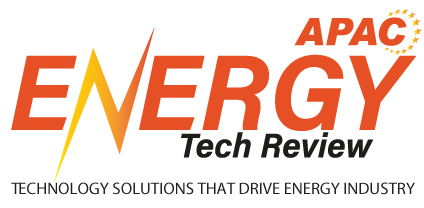Mark Schaefer, vice president of the Information Technology Business at Siemens-Energy, has been successfully leading the IT department towards a clear direction for the past two years.Schaefer began his tenure at Siemens-Energy as the Head of Digital Enterprise and Information Technology for the division of generation, where he brought a strategic perspective to the organization due to his background as a civil engineer and past experience as a consultant implementing IT solutions. Schaefer's expertise and leadership have been instrumental in driving Siemens-Energy's digital transformation and ensuring its continued success in the industry.
Mark is a valuable consultant and advisor to Siemens Energy due to his generalist approach and expertise in technology, communication, and business. Delivering high-value projects to the Information Technology business and helping Siemens Energy fulfil its goal is his main priority.
What are some prominent challenges in the market in developing new technologies related to gas turbines and steam engines?
There have been some challenges and opportunities in the gas turbine and steam engine market lately. Two years ago, the market was experiencing a downturn, and while people were talking about decarbonization initiatives, they were not putting them into practice. However, the global switch from coal to gas, which helps reduce CO2 emissions, is predicted to keep the gas turbine market steady for the next decade.
But now, things have changed, and there is an increase in demand in the gas turbine and steam turbine markets. In the energy transportation sector, there has been a steady 10 percent yearly growth, leading to more requirements for projects. There has been an increase in the compression business also, due to the need for higher pressures in pipelines carrying hydrogen instead of gas.
"The demand for energy-related projects is on the rise, and it is expected that executing any project in this field will continue to increase for at least the next ten years."
Regardless of having all these growing needs in the market, quick company expansion is really a big challenge. Scaling up solutions in this sector, requires establishing centralized data models and systems to enable effective IT support.
What are some of the latest trends that business leaders should look after?
The convergence of cloudification and AI is a significant trend that business leaders should closely monitor. Cloudification makes data more adaptable and accessible, while AI, on the other side, has the potential to revolutionize various industries.
However, integrating AI into everyday tasks and procedures requires more effort. It entails utilizing AI to enhance the speed, quality, and resource efficiency of existing software solutions, without being constrained by any particular technology. To reap the benefits of these advancements, foundational work such as data harmonization and standardization are crucial. It is something that started years ago and will continue for a long period of time.
What are some practices that one can implement to get better results?
Democratizing access to new technology and knowledge within the organization is a highly effective technique that can be implemented. For instance, if someone is interested in learning something which is not part of their department, then required opportunities should be provided to them. They should be helped become familiar with the language's fundamentals and create more extensive cases.
This initiative can empower every employee and is not limited to IT or retaliation departments. Learning can take place within a small group or organization and can happen to anyone, who is willing to learn new skills through training sessions, open platforms, and time commitment. By creating an inclusive learning culture and offering tools, people can ensure that everyone in the company can improve their abilities and contribute more to the organization.
What would be your piece of advice to your fellow peers and aspiring professionals starting their career in the energy sector?
To successfully adapt to the ever-evolving landscape of technology, one must have an open mindset. We should not just accept the current state as final, but instead embrace emerging technologies and utilize them to redesign processes. Rather than simply using AI to improve existing systems, we should be bold enough to ask difficult questions and introduce new concepts with courage.
Creative thinking is also important, especially when bringing in new team members with unique perspectives. In order to stay ahead in this constantly changing environment, we need to be able to critically evaluate and improve our processes from an outsider's perspective.












